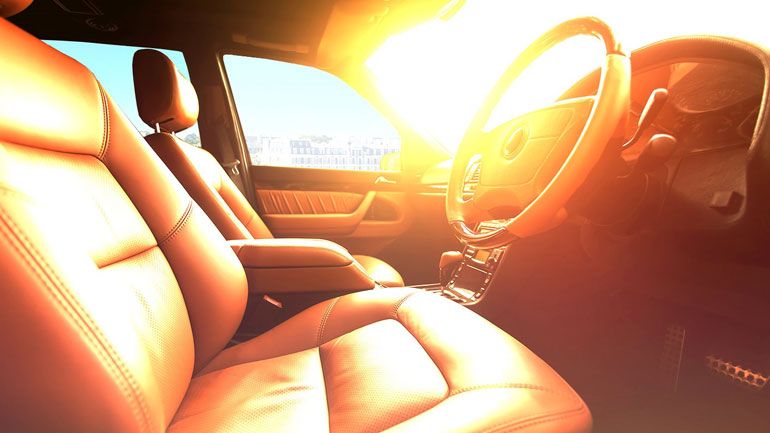
How to keep your car cool in summer
Summer can be a brutal season for anything that moves. While all we need to cool down is a cold drink and air conditioning, your car needs a bit more attention to keep it running. This means paying attention to how the car performs first and looking for small changes that can lead to big problems if ignored. But preventing costly repairs caused by heat damage can be simple and painless if you know what to look for.
Part 1 of 1: Cooling the car in summer
Step 1: Check cabin air filters.. One of the most obvious components to look out for in order to keep your car cool is the air conditioner.
Prolonged use often means dust and other particles build up on your air conditioner's filters, which can cause airflow to be blocked.
The cabin air filter is most likely located behind or under your car's glove box.
Usually a quick filter removal and wipe will clear up any airflow issues, as long as the filter itself is in good condition. If this is not enough, replace the filter as soon as possible.
Step 2: Pay attention to the temperature of the air conditioner. If the air conditioner doesn't blow as cold as it used to, especially if the air filter is clean, the problem may be with a component.
Have a mechanic, for example from AvtoTachki, check the coolant level to make sure it is at the correct level.
Your air conditioner can be prone to any number of issues that cannot be fixed with a quick and easy solution and should be checked and fixed as quickly as possible by a professional.
Step 3Check the battery. When the days get hotter, your battery is put under more stress than on a day with an average temperature.
Heat is unavoidable, but vibration can also ruin your battery, so make sure it's safe before summer hits.
All connections must also be free from rust and corrosion, which can be aggravated by heat and further damage the battery.
If the battery is still fairly new, i.e. less than three years old, you don't need to worry about checking its durability, but any batteries over that age should be checked so you know how much time the battery has left.
Step 4: Don't Skip an Oil Change. Your vehicle's lubrication systems are designed to allow metal components to slide smoothly while reducing friction that creates heat that can seriously damage or even disable your engine.
While new cars can typically go up to 5,000 miles before the next oil change, older cars should stick to 2,000-3,000 miles between changes. Check the oil level often, and if it is low, top it up, and if it is black, change it completely.
Step 5: Check the coolant. Coolant, as its name suggests, is responsible for removing heat from your engine, which prevents damage to parts.
Coolant is not like oil in the sense that it needs to be changed frequently. You can expect several years between coolant changes.
How long you can wait before changing your coolant depends on the make and driving conditions. Expect your previous coolant fill to last anywhere from 20,000 to 50,000 miles.
Check the manufacturer's information on the label of the coolant you are using, or consult a mechanic to find out when it's time to change the coolant.
Step 6: Check each of your tires. Heat expands the air trapped in the tires, which can build up both during driving and under the influence of weather conditions.
Over-inflated tires during the summer months can lead to more punctures, but they shouldn't be under-inflated either.
For the most accurate results, check the pressure in each of your tires when the car is cold and has not been driven for several hours.
Inflate or deflate tires according to the PSI recommendations set by the tire manufacturer. These recommendations can usually be found on a sticker located inside the door on the driver's side.
Summer should be a season of fun and relaxation, and nothing ruins it like an overheated car on the side of the road in the middle of a trip. With these suggestions in mind, your car will be much more efficient at bearing the brunt of the summer heat - and best of all, none of them are expensive or time-consuming if you're diligent.
However, if you are experiencing any issues with your vehicle overheating, then you should have your vehicle checked as soon as possible to prevent engine damage. In this case, AvtoTachki mechanics can come to your home or office to diagnose the overheating problem and make the necessary repairs to make sure your car is ready to drive.